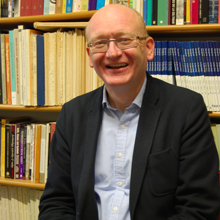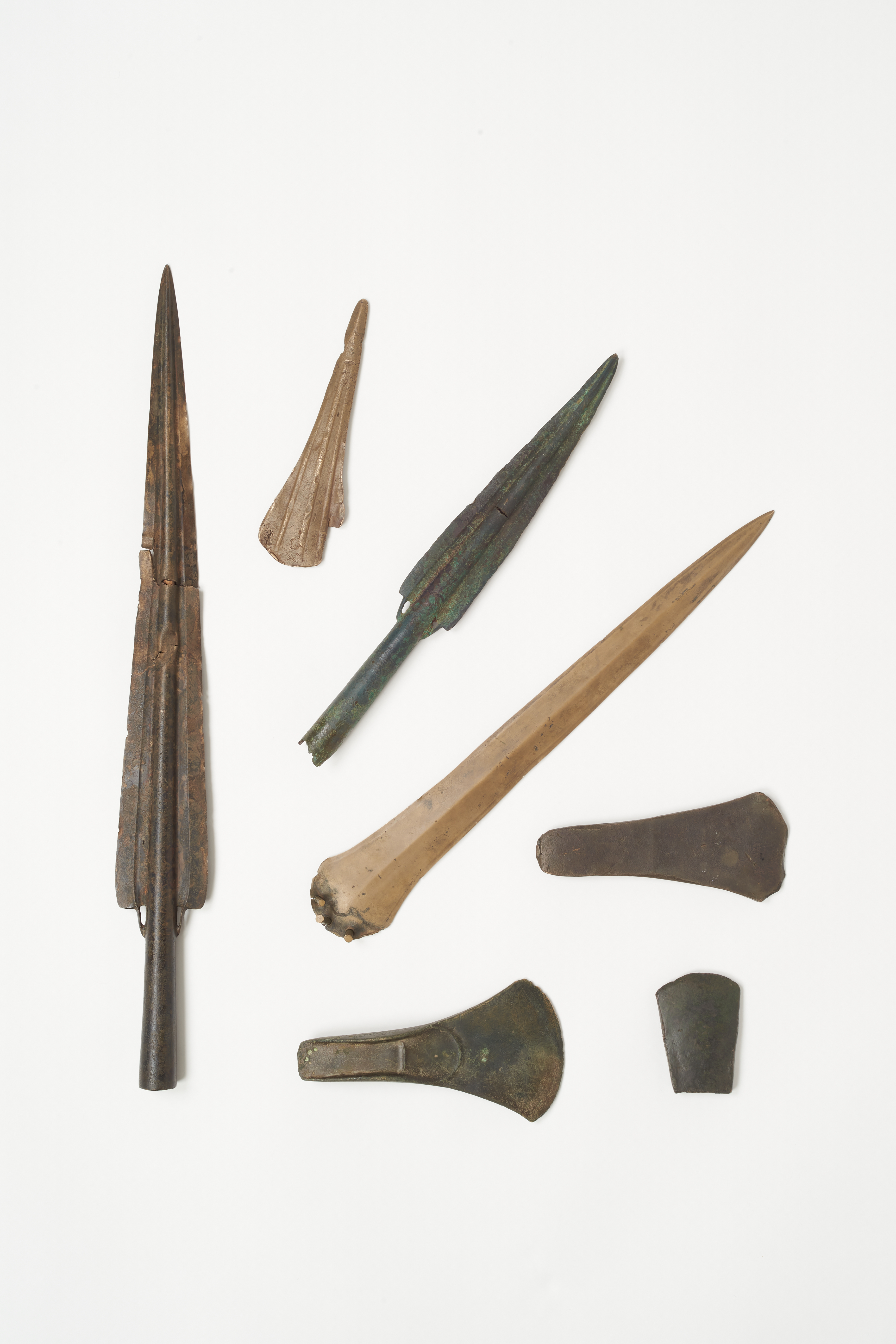Fascinating Bronze Age finds, found in the wetlands of the River Trent, will be on display in a brand-new free exhibition at the University of Nottingham Museum.
The exhibition Bronze Age Offerings in the River Trent, which opens on 19 July 2024, brings together items from the University Museum, Nottingham City Museums and Galleries and Derby Museums to throw light on the Bronze Age of the East Midlands.
Around 3,000 years ago, rich warriors made offerings in the River Trent, and about 200 of these artefacts have been recovered from the waters of the river and the surrounding wetlands, making it one of the biggest such collections in Europe.
55 of these bronze objects, including spectacular Bronze Age swords and spears, have been brought together by the curators Mark Pearce, Professor of Mediterranean Prehistory, and Dr Richard Davis, Honorary Research Fellow in the Department of Classics and Archaeology.
Professor Pearce, who has been studying the ritual deposition of Bronze Age metalwork recovered from the River Trent and its floodplains, said:

"This exhibition throws light on the beliefs of the inhabitants of the East Midlands 3,000 years ago, who made rich offerings to the gods in the waters of the River Trent. The swords and spears offered in the river were the prized possessions of Bronze Age warriors and chieftains."
Everyday life and religion were closely bound together in the Bronze Age. Weapons were also symbols of status and power and were part of the way rulers presented themselves. Prestigious items of prehistoric metalwork, such as the swords and spearheads, affirmed people's position in society and so not only tell us about hunting and combat, but they also reveal people's social status.

It's known that Bronze Age Britons deposited thousands of prehistoric objects in particular rivers as gifts to the deities. The River Trent is one of the principal rivers in Europe – along with the Thames, the Seine and the Rhine – where prehistoric metalwork was ritually deposited in the water at various points along its length. Not only do these items tell us about society at the time, but they also tell us about beliefs and spirituality during the Bronze Age in the East Midlands.
Dr Clare Pickersgill, Keeper of the University of Nottingham Museum, said: "This exhibition is a wonderful opportunity to bring these artefacts together, for the first time, and to discover what they can tell us about the region during this fascinating period of time. We look forward to welcoming visitors to the exhibition."
The exhibition runs from Friday 19 July 2024 to Sunday 5 January 2025 at the University of Nottingham Museum






